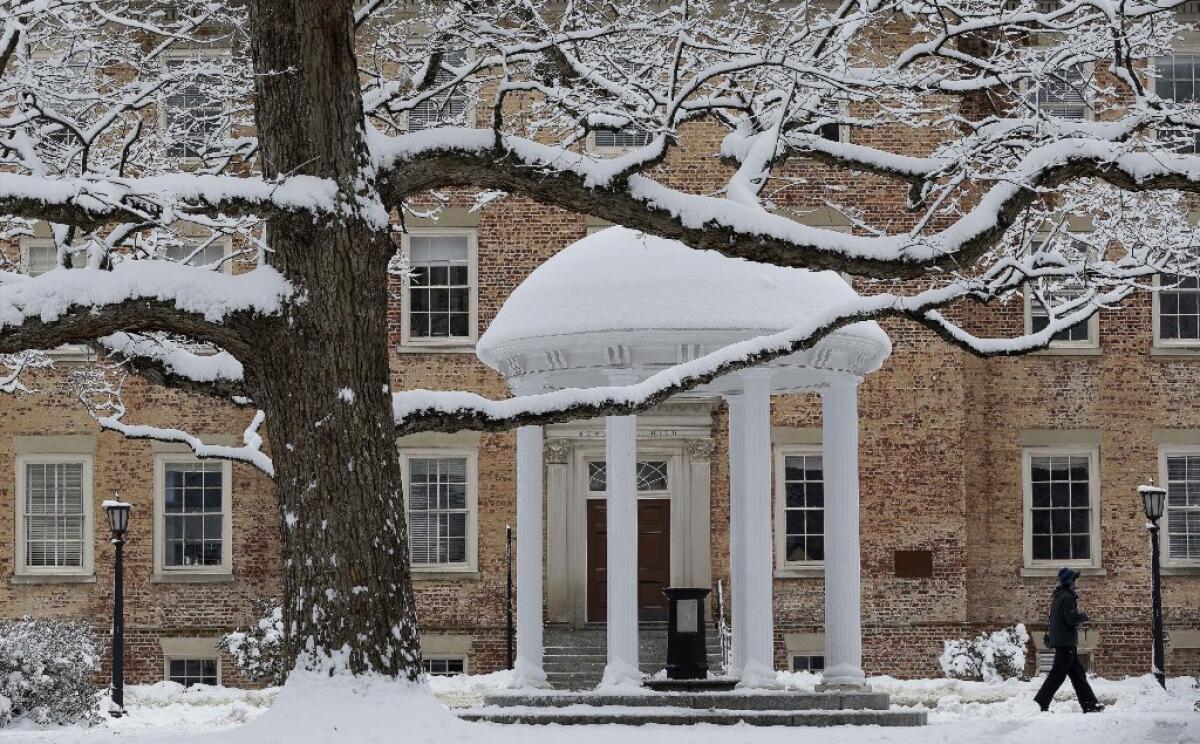Opinion: Closing University of North Carolina centers reeks of partisanship

- Share via
There’s something rotten in North Carolina.
The board of governors for the University of North Carolina, over the objections of the university chancellor, last week voted to close down three university-based centers focusing on poverty, the environment and voter engagement. North Carolina, you may recall, was one of the Republican-led states that adopted voting restrictions before last fall’s midterm elections.
The affected centers are the Center on Work, Poverty and Opportunity at UNC-Chapel Hill, East Carolina University’s Center for Biodiversity, and North Carolina Central University’s Institute for Civic Engagement and Social Change.
The Republican-dominated board of governors framed the decision as part of a broader and ongoing review of the university system, and that the three centers weren’t targeted because of their areas of focus. But as critics of the decision point out, the work and poverty center --led by Gene Nichol, a vocal critic of the state’s Republican leadership -- is funded by outside foundations, not the university. And all three centers focus on areas that tend not to be things that Republicans favor.
Given the chancellor’s opposition to these moves, and a history by the board of governors to let the individual campuses make such decisions, it’s hard to interpret the closings as anything other than the unacceptable intrusion of petty politics into the realm of academic freedom. And yes, it’s North Carolina’s problem, but the move may be part of a new front in the culture wars, the Pacific Standard reports. The outlet notes that Wisconsin Gov. Scott Walker was recently caught trying to change the basic mission of the University of Wisconsin through budget language, rather than a public debate.
These are troubling developments. The North Carolina decision at a minimum stomps on concepts of academic freedom, which the American Assn. of University Professors put into a historical context here. Walker’s move would have converted the University of Wisconsin’s core mission from the “search for truth” and to “improve the human condition” to instead “meet the state’s workforce needs.” While there is an argument to be made that more institutions of higher education should better equip students for a rapidly changing economy, those are not either/or missions.
More cogently, partisan politics needs to be kept separate from administration of public universities. And, for that matter, from public elementary and secondary schools. A current bill in the California Assembly would add the deportation of Mexican American citizens during the Great Depression to social science curricula on human rights and genocide. While those topics are important and worthy of study, state legislatures, and partisan governing bodies, shouldn’t intrude so deeply into education.
Follow Scott Martelle on Twitter @smartelle
More to Read
A cure for the common opinion
Get thought-provoking perspectives with our weekly newsletter.
You may occasionally receive promotional content from the Los Angeles Times.










